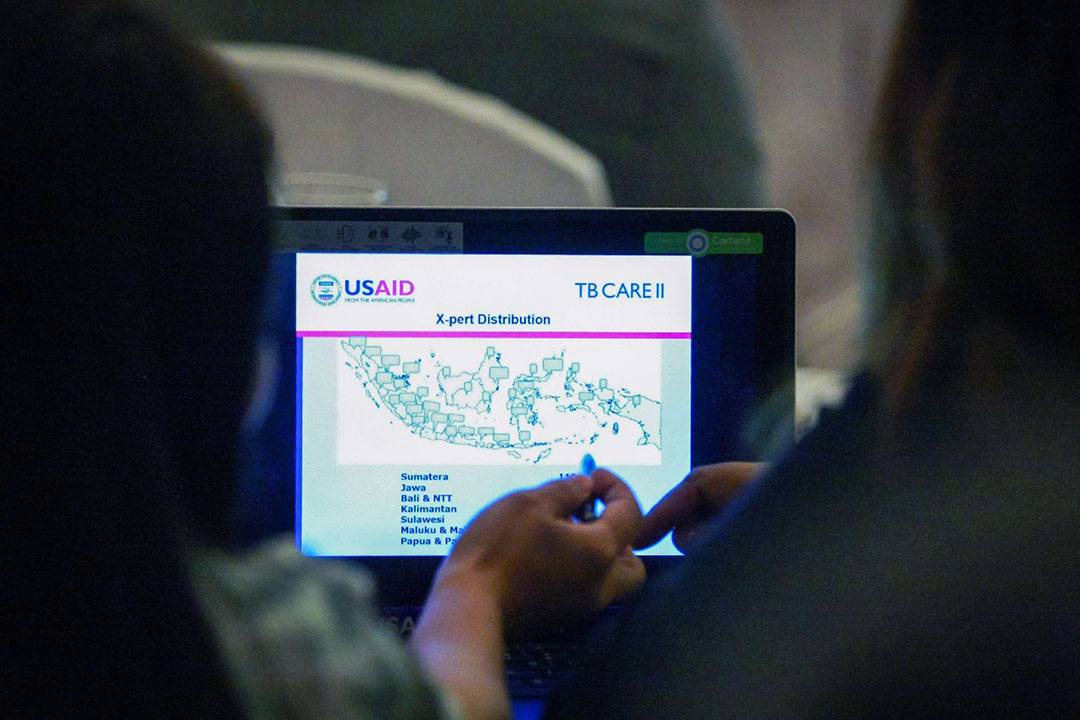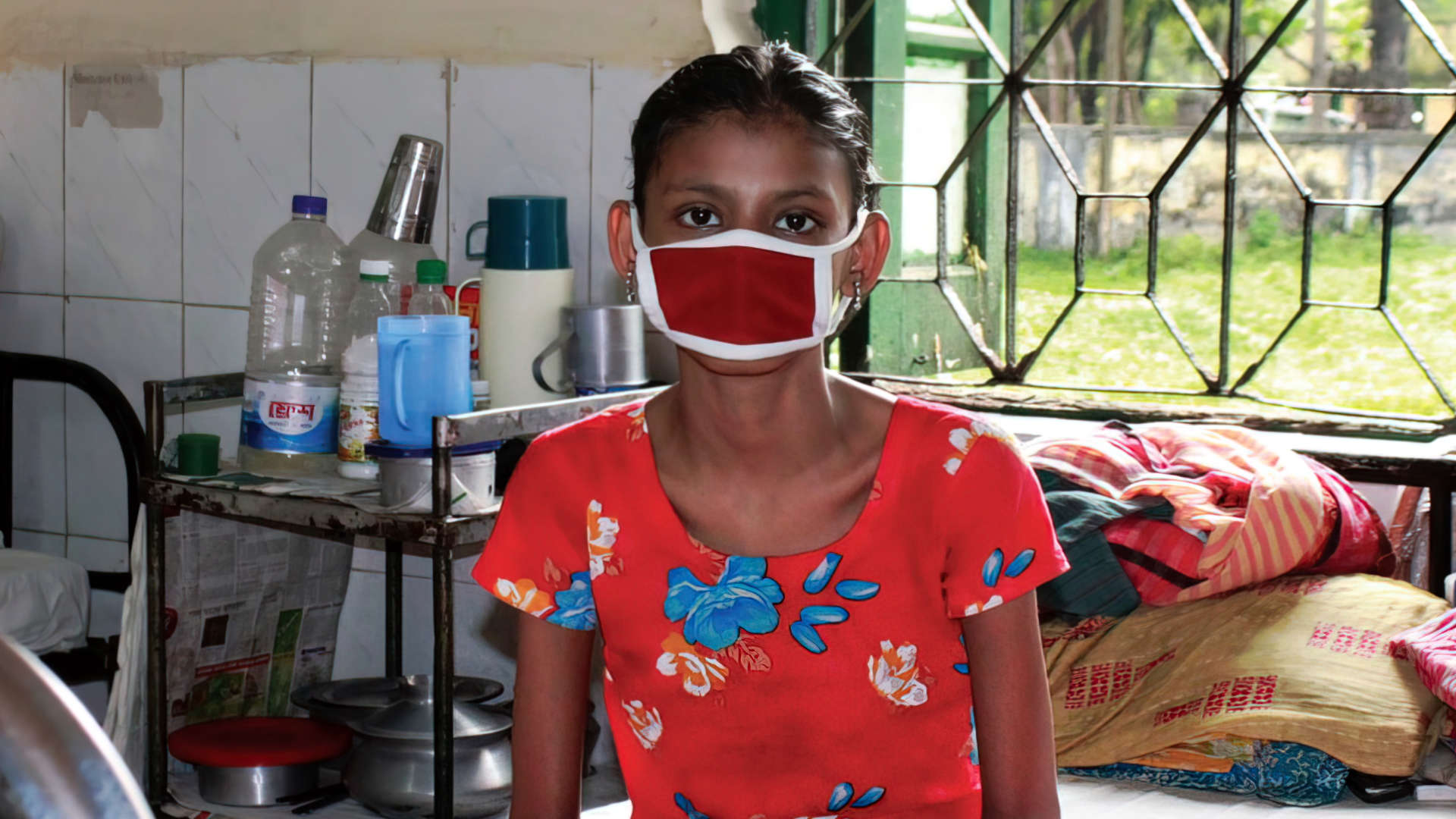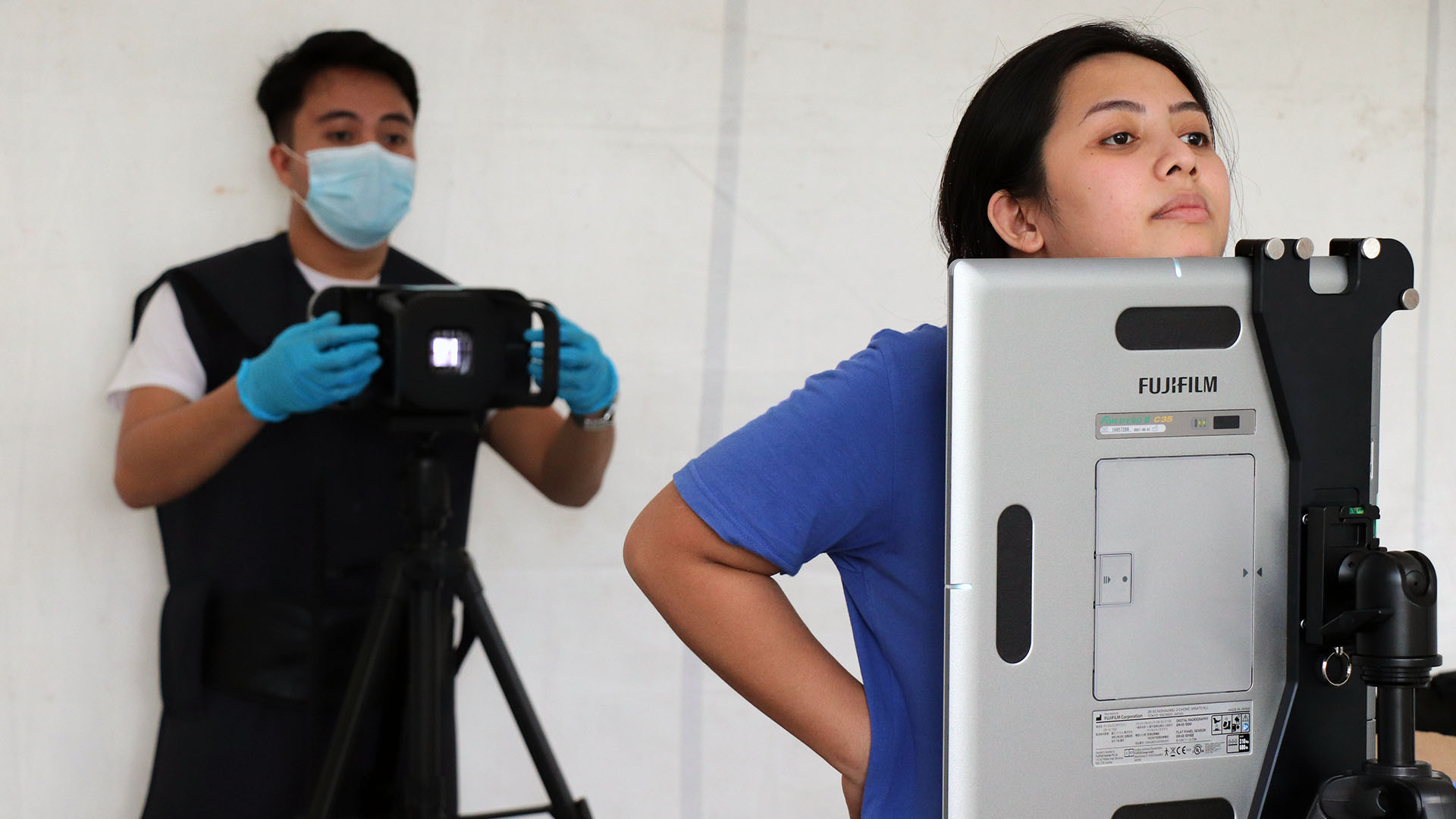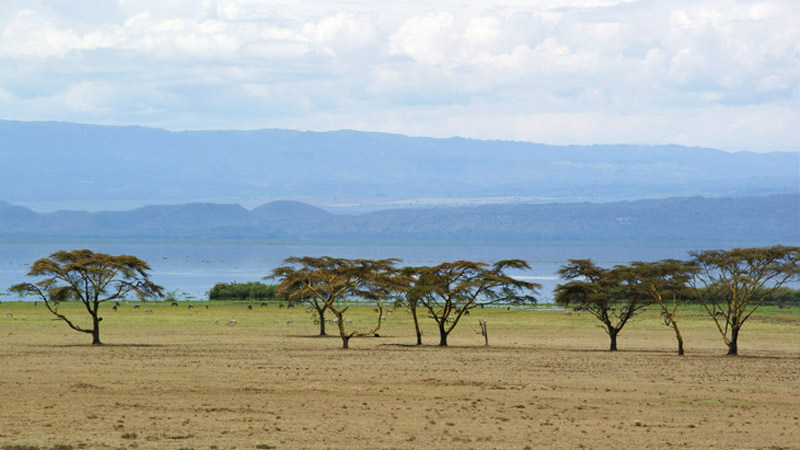The USAID TB CARE II Project, implemented by URC and partners, recently hosted a two-day virtual forum entitled “The Future of Digital Health for Ending TB.” The event, attended by 1,150 people from more than 65 countries – including all USAID TB priority countries – included a mix of live and recorded panel discussions, poster presentations, and oral presentations.
Speakers included high-level representatives from USAID, the World Health Organization, and the Stop TB Partnership, national TB programs, private sector, TB implementing partners, TB survivors, and advocates for people with TB.
URC President Earl Gast offered opening remarks. “There remain many steep hurdles to cross before we reach a TB-free world, but as we collectively continue to develop and apply new digital health technologies, we will be closer to achieving that vision,” Gast said.
“We know that success for our shared vision [of at TB-free world] depends on both a moral and scientific imperative to share knowledge, information, and best practices that come from a diverse range of stakeholders,” said Gast.
The forum described technological innovations for improving TB prevention, detection and management, engaging private TB providers, and leveraging data for better analytics and decision making. Additionally, in the context of the COVID-19 pandemic, the forum highlighted the urgency of scaling up digital health technologies for maintaining active case finding, diagnosis, and treatment services for people with TB.
Professor Kenneth Castro, a Senior TB Technical Advisor at USAID/Washington, emphasized that “we cannot afford to continue business as usual. It is crucial to apply innovations that will help us accelerate progress against TB. Digital health and technology are increasingly gaining importance as tools to maintain robust and effective TB services in the COVID-19-aware world.”
TB CARE II was a ‘Key Mechanism’ for U.S. Government TB Strategies
As a flagship global TB project for USAID since 2010, TB CARE II has worked to strengthen TB case finding and diagnosis through digital health technologies and community-based care models, to improve quality of TB care – especially for people living with HIV, people with multi-drug resistant TB (MDR-TB) and people with high occupational risk – and to guide national TB control programs in policy development and implementation.
The event marked the end of a decade of interventions via TB CARE II. The project implemented more than 54 multi-year activities to control and prevent the spread of TB and MDR-TB.
“The USAID TB CARE II Project was one of the key mechanisms for reaching the goals of the U.S. government’s TB strategies,” said Nicholas Enrich, both USAID’s Program Team Lead for the Tuberculosis Division, Office of Infectious Diseases, Bureau of Global Health and AOR for TB CARE II. “The project provided global leadership and technical support to national TB programs and other stakeholders to accelerate the implementation of TB, TB-HIV co-infection, and MDR-TB services. It particularly emphasized innovative technological approaches to improve TB case detection and treatment, and interventions related to programmatic management of DR-TB and TB infection prevention and control. The project also supported USAID in leading a global dialogue on effective strategies and tools to end TB.”
“As the world faces an unprecedented public health challenge, the importance of digital health technologies for TB cannot be understated, and support for these innovations is needed more than ever,” said Hala Jassim AlMossawi, URC Vice President for Program Implementation and Business Development and TB CARE II Acting Director.



